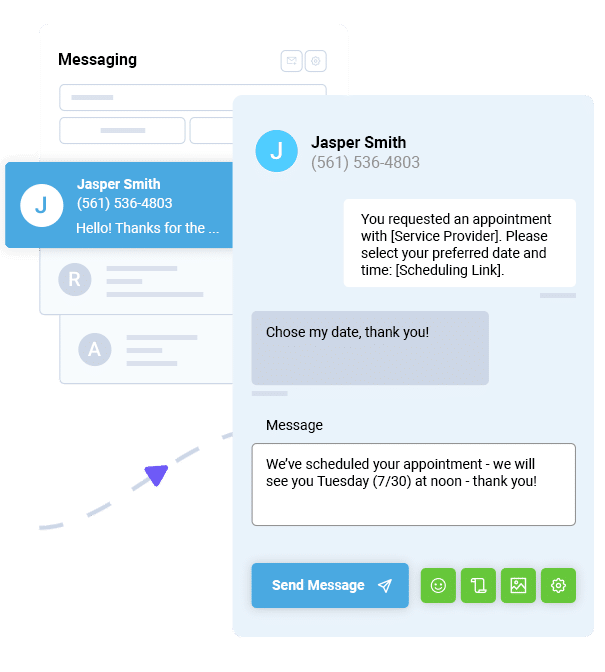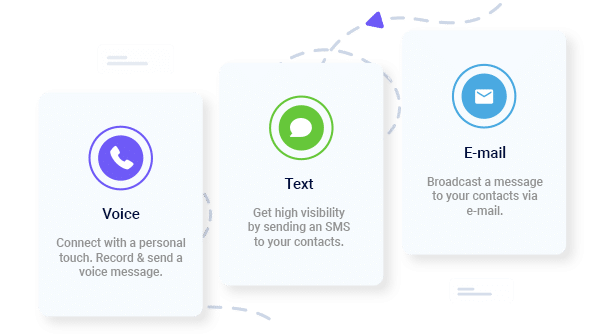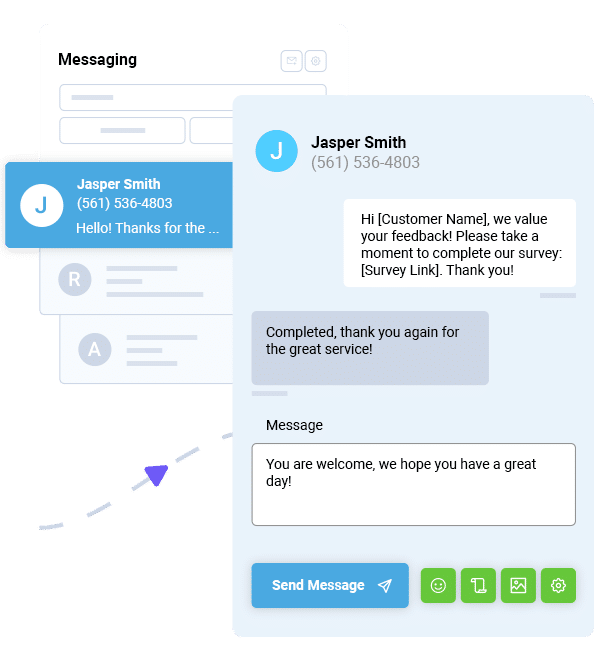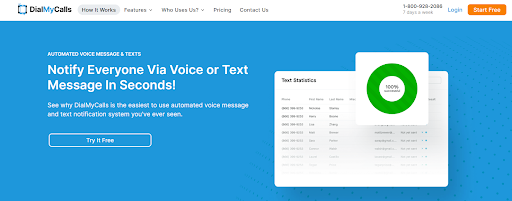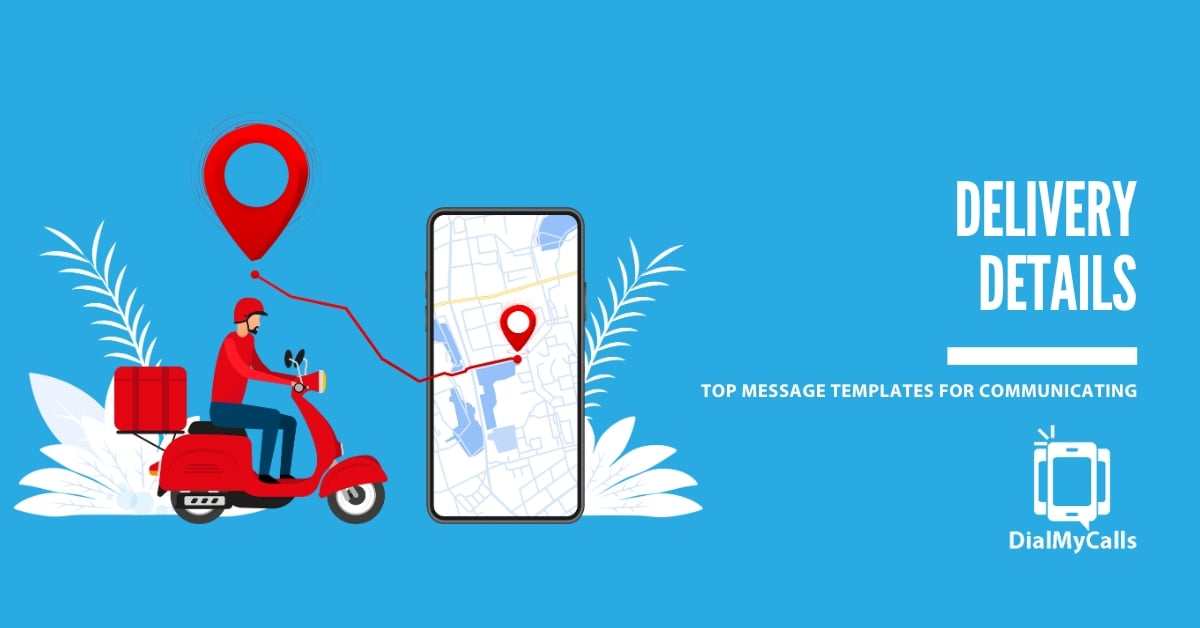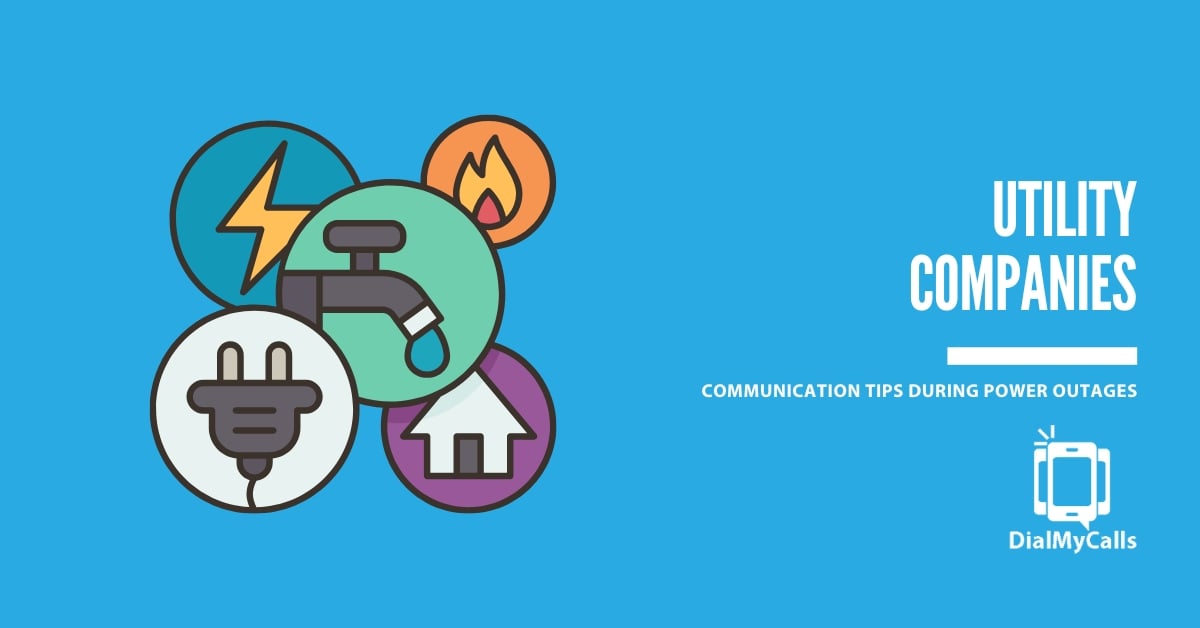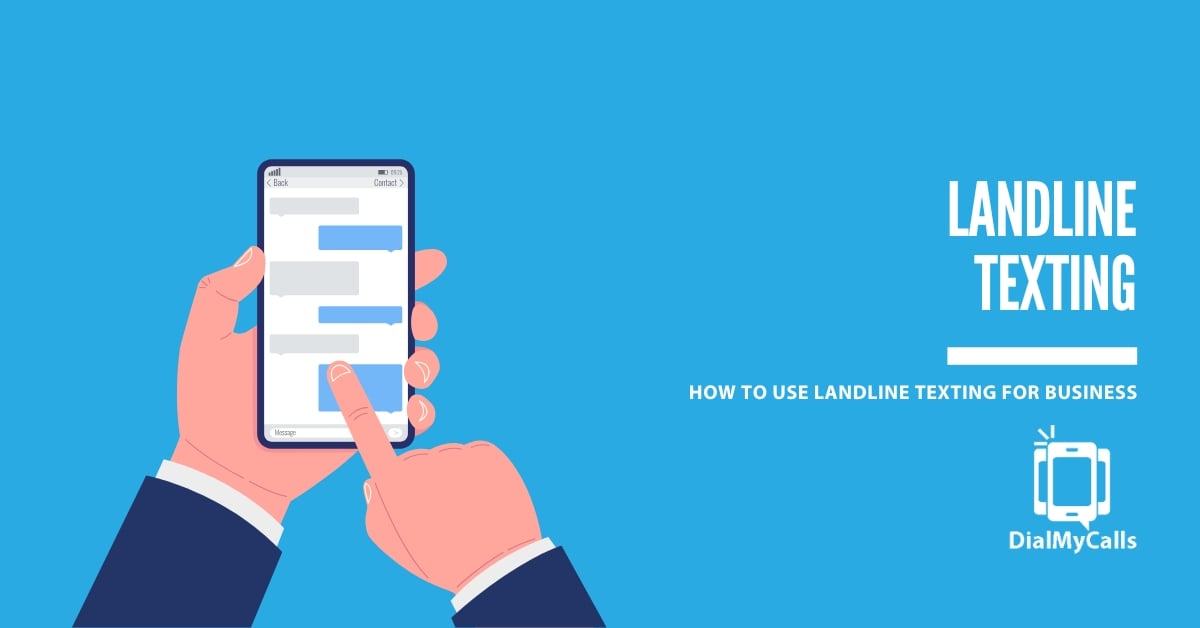Author
Tim Smith is the Media Manager at DialMyCalls, where he has leveraged his expertise in telecommunications, SaaS, SEO optimization, technical writing, and mass communication systems since 2011. Tim is a seasoned professional with over 12 years at DialMyCalls and 15+ years of online writing experience.
Try Using DialMyCalls Right Now
Start For FreeRecent Posts
- SMS Marketing Metrics: How to Measure and Improve Your Text Campaign’s Success
- What are SMS Carrier Fees and How to Lower Your Costs
- 8 Creative SMS Marketing Ideas to Boost Engagement This Summer
- 15 Ways to Use QR Codes For Event Promotion & Attendee Engagement
- Top 6 Automated Calling Service Providers For Your Business
Categories
“I am a youth minister and have spent hours in the past calling students individually to remind them of an upcoming event or to get out an urgent announcement. With DialMyCalls.com, I cut that time down to about 1 minute. I also love how I can see exactly who answered live and how long they listened so I know if they heard the whole message. DialMyCalls.com is the best website I have stumbled upon all year! Thanks!”
Central Baptist Church
Try Using DialMyCalls Right Now
Start For FreeTop 6 Strategies for Better Customer Communication in Auto Repair
Posted by Tim Smith in Customer Reminders on July 20, 2017
Updated on February 13, 2025
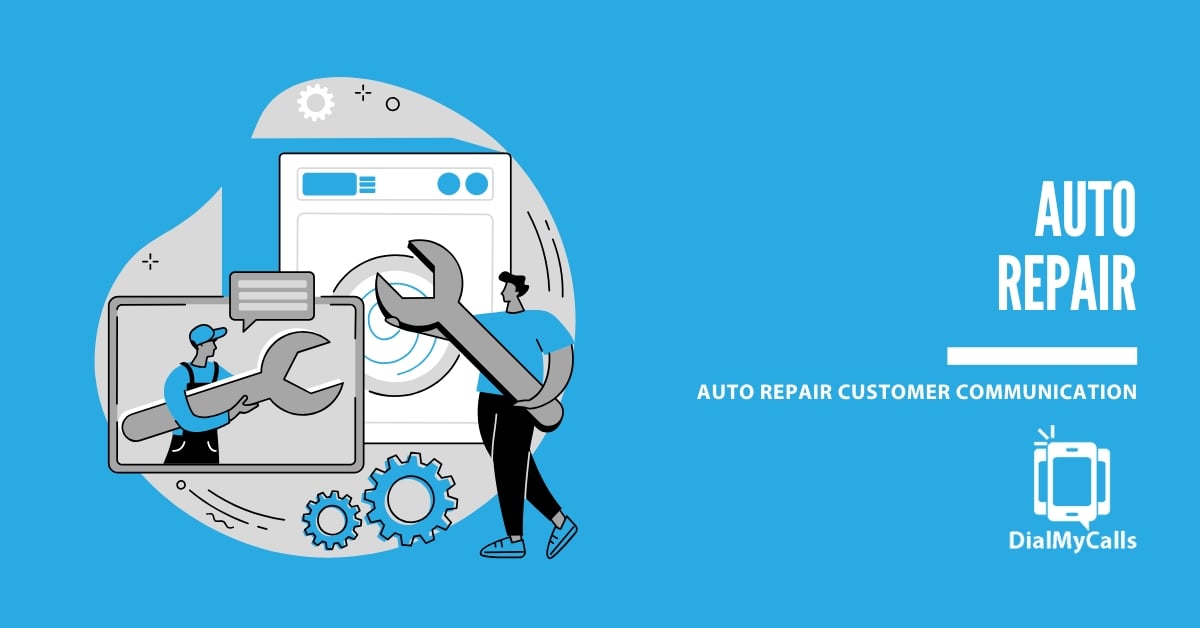
Running an auto repair business is more than just fixing cars—it’s about building trust, creating lasting relationships, and ensuring your customers drive away with a smile (and, of course, a working vehicle). That said, you probably know that most people don’t exactly love visiting auto repair shops unless they are looking to boost their vehicle’s performance. But what if your business could stand out by making every interaction seamless, transparent, and even enjoyable? That’s where effective communication comes into play.
From deciphering technical jargon to addressing unexpected costs, auto repair businesses face unique challenges when it comes to customer communication. Poor communication can lead to frustration, misunderstandings, and even lost business. But that’s exactly what I will help you with. In this blog, I will share six actionable strategies that will improve customer communication, boost loyalty, and leave your customers saying, “I wouldn’t trust my car anywhere else!”
Scheduling Made Easy
Automate Your Appointment Reminder System with SMS & Phone Calls
6 Strategies to Enhance Customer Communication in Auto Repair Businesses
- Use Automated SMS Notifications
- Provide Real-Time Updates on Repairs
- Create a Transparent Pricing System
- Train Staff in Effective Communication
- Collect Customer Feedback Regularly
- Leverage Personalization for Stronger Relationships
1. Use Automated SMS Notifications
Think of automated SMS notifications as the pit crew of customer communication. They take the guesswork out and increase the chances of customers showing up right on time. You can utilize communication tools like DialMyCalls that allow you to send:
- Appointment reminders to ensure customers show up on time.
- Repair progress updates to keep them in the loop.
- Follow-ups to check on their satisfaction or remind them of upcoming maintenance.
By automating these tasks, you’ll save time, reduce no-shows, and enhance transparency. And let’s be honest, who doesn’t love a text that says, “Your car is ready for pick-up”?
2. Provide Real-Time Updates on Repairs
Imagine your customer’s car is undergoing repairs, and instead of sitting in suspense, they receive a photo or video showing the work being done. Auto repair software can make this possible with their real-time updates feature. Real-time updates:
- Build trust by showing customers exactly what’s happening.
- Provide transparency that reduces the anxiety of unknown costs.
- Create a professional impression that sets you apart from competitors.
Pro tip: Pair updates with simple explanations so customers understand what’s being fixed. No one wants to Google “what is a serpentine belt” while trying to decode a mechanic’s message.
3. Create a Transparent Pricing System
One of the quickest ways to lose a customer’s trust is by surprising them with unexpected costs. A transparent pricing system that includes clear estimates and detailed explanations of charges will help you avoid this pitfall. Here’s how:
- Provide written or digital estimates before starting any work.
- Use auto repair estimation tools to show fair pricing benchmarks.
- Break down costs into labor, parts, and additional fees so customers understand what they’re paying for.
When you’re upfront about pricing, you’re not just saving your customers from sticker shock—you’re building credibility and fostering long-term relationships.
Pro Tip: In case you discover additional issues during the repair process, you can utilize real-time updates to keep your customers in the loop and avoid surprising them with a larger bill.
4. Train Staff in Effective Communication
Your front-desk staff and technicians are the face of your business. Investing in their communication skills can make a world of difference. So, here are the key areas I would focus on:
- Active listening: Make customers feel heard by paying full attention to their concerns.
- Empathy: Show understanding, especially when they’re stressed about car troubles.
- Clear explanations: Avoid jargon and use simple terms to explain issues and solutions.
Consider hosting workshops or providing online training to help your team master these skills. A friendly and knowledgeable staff member can turn a frustrated first-timer into a loyal customer.
5. Collect Customer Feedback Regularly
Feedback is a goldmine for improvement, and honestly, there’s no better way to improve your services. By asking customers for their thoughts and how you can improve, you’re showing them that their opinions matter. Here’s how to make it happen:
- Send short surveys via SMS or email after each service. You can use a mass texting platform with custom pricing plans to find the right fit for your business.
- Use tools like Google Forms to gather feedback.
- Act on the insights you receive to address pain points and celebrate successes.
Remember, responding to feedback—both positive and negative—is crucial. A simple “Thank you for your suggestion” or “We’re sorry about your experience; here’s how we’re fixing it” can go a long way in earning customer loyalty.
6. Leverage Personalization for Stronger Relationships
Personalized communication is like the cherry on top of a perfect sundae. It shows your customers that you care about them as individuals. Here’s how to make your interactions more personal:
- Address customers by their names in texts and emails.
- Keep records of service history and preferences.
- Send reminders for upcoming maintenance or exclusive offers tailored to their vehicle.
For example, a message like, “Hi Alex, your Honda Civic is due for an oil change” feels a lot more thoughtful than a generic “Your car needs service.” Small touches like these can significantly impact customer retention.
Benefits of Improved Communication
- Enhanced Customer Loyalty
- Increased Repeat Business
- Fewer Complaints
- Competitive Advantage
- Higher Satisfaction Scores
- Improved Operational Efficiency
- Stronger Customer Relationships
- Greater Revenue Potential
Enhanced Customer Loyalty
Clear and consistent communication shows your customers you value their time and trust. When customers feel cared for and informed, they’re more likely to stick with your shop instead of shopping around for alternatives. Happy customers often become vocal advocates, bringing in new business through word-of-mouth referrals.
Increased Repeat Business
Customers who receive personalized updates, reminders, and follow-ups are far more likely to return for future services. Whether it’s a friendly reminder about an upcoming oil change or a thank-you message after a repair, these gestures create a positive impression that keeps customers coming back.
Fewer Complaints
Uncertainty breeds frustration. By proactively providing updates and being transparent about pricing, you can eliminate the misunderstandings that often lead to complaints. Clear explanations ensure that your customers leave satisfied, even if the repair wasn’t what they hoped for.
Competitive Advantage
In an industry where trust is the ultimate service you can deliver, effective communication can be the factor that sets you apart from competitors. Shops that keep customers informed and engaged are remembered—and recommended—more often than those that don’t.
Stay Connected with Mass Notifications
Create & Send a Broadcast to Thousands in Seconds
Higher Satisfaction Scores
Happy customers leave glowing reviews, and glowing reviews bring in more customers. Whether on Yelp, Google, or social media, positive testimonials driven by excellent communication can significantly enhance your shop’s reputation and draw in new business.
Improved Operational Efficiency
Better communication doesn’t just benefit your customers; it also streamlines your team’s workflow. When customers are well-informed about timelines, pricing, and progress, your staff spends less time answering repetitive questions and more time focusing on repairs and service.
Stronger Customer Relationships
Trust and transparency are the foundations of long-term relationships. Consistent, clear communication builds confidence and ensures that your customers see you as a reliable partner in maintaining their vehicles—not just a one-time service provider.
Greater Revenue Potential
Improved communication helps retain customers, attract new ones through positive reviews, and upsell additional services by addressing customer needs proactively. Together, these factors contribute to a more profitable business model.
Wrapping Up!
Running an auto repair shop is no small feat, but improving your customer communication can make it a lot easier. Each strategy we’ve explored here, from automated SMS notifications to real-time updates and transparent pricing, plays a vital role in turning first-time visitors into lifelong advocates.
Remember, your customers might not always understand the intricacies of engine repairs or transmission systems, but they’ll always remember how you made them feel. Whether it’s through a thoughtful follow-up, a transparent estimate, or a kind explanation, the extra effort you put into communication will set your shop apart in an industry where trust is key.
Ready to elevate your communication style? Tools like DialMyCalls make it simple to stay connected with your customers, keeping them informed and satisfied every step of the way. So, go ahead—turn those grumbles into gratitude and those one-time visitors into lifelong fans.
Missed Appointments? Not Anymore
Use SMS & Phone Calls to Automatically Send Appointment Reminders
